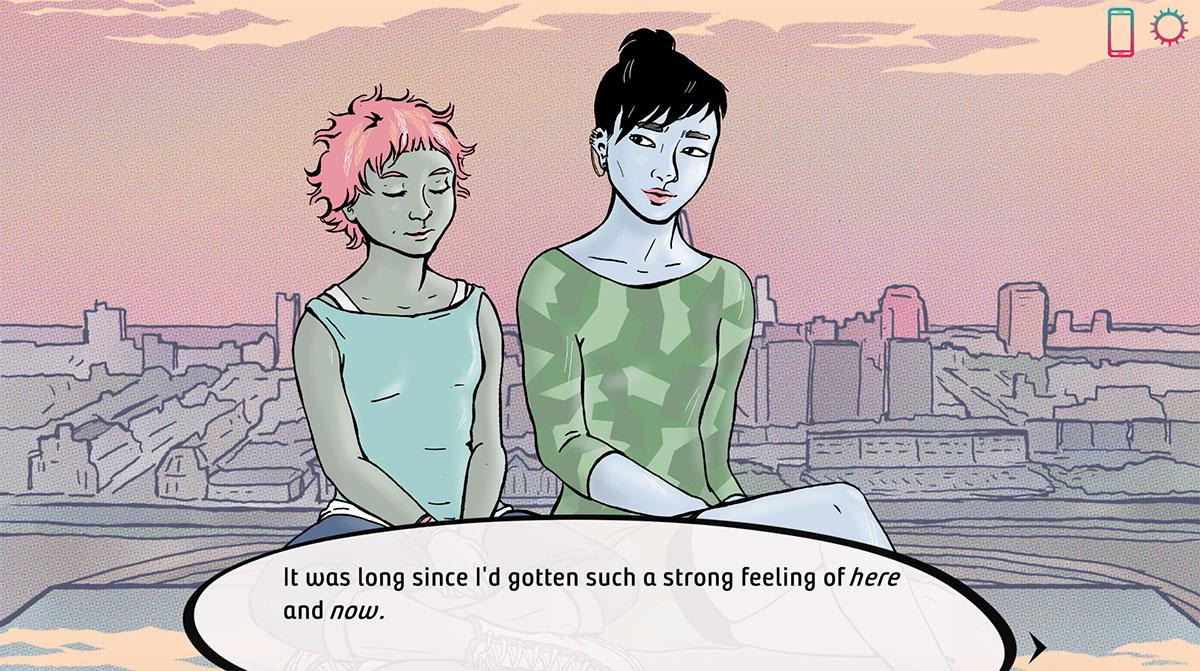
Fictional relationships feel real
I’ve been writing a few posts now about the relationships in Knife Sisters and what we learned from making that game, as well as from the comments we received (here and here). This post is about one of the most important findings we’ve done when it comes to relation games.
Players invest themselves when playing
Knife Sisters was the first game I made about relationships. I’ve written novels, but as you might know, there are big differences between games and novels… one of the most prominent being that people who play games and retell what happened, talk about themselves in first person. That’s something I’ve never experienced when it comes to novels. It seems like the player identifies more closely with the player character than what readers do with the main character in a novel. That isn’t to say that readers don’t engage deeply with the characters in novels, they definitely do – I just think they do it in another way.
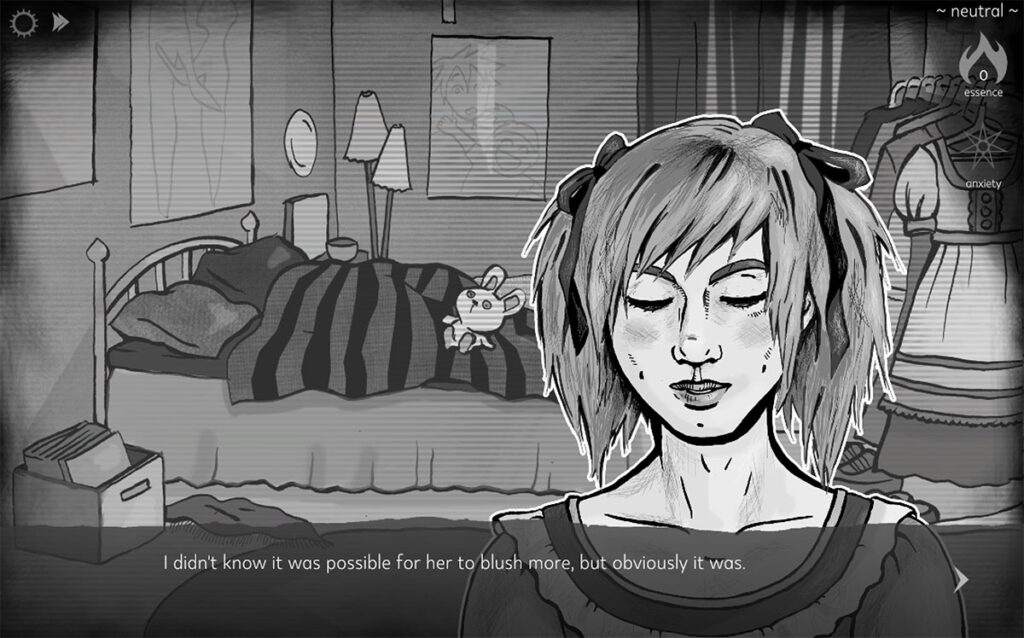
Players who played Knife Sisters tend to say things like “I dated Vicki”, or “I went to the forest to find a skull”… and by that, in a way, they’re stating that they are in fact the main character Leo – because they’re the ones making that character’s decisions. The one that brought this phenomenon to my attention was Christine Love in her fantastic talk Narrative Techniques in Ladykiller in a Bind at VNConf in 2017. And after hearing about it, I’ve paid attention to this habit in myself, and yes, I do it too!
From that viewpoint it also gets pretty easy to see something that I’m not sure I was fully aware of when I started working on Knife Sisters, and that I will elaborate on below.
Fictional relationships feel real and should be treated as such
Players invest themselves when playing, and the decisions they make, as well as what happens in the in-game relationships, needs to align somewhat with the player’s wishes for that outcome – otherwise it might feel very out of tune for them. The relationships in a game need to be handled with care, just like ‘real’ relationships.
The break-ups
From my own experiences of playing games, I have two examples, both from the same game, an otome game called Amnesia (the English release is called Amnesia:Memories) by Idea Factory & Otomate. (Note that there will be spoilers ahead so if you’re not up for that, you can stop reading here.)
In Amnesia you play a girl with memory loss. There are four parallel worlds which you as a player can enter and explore, to try to find out what has really happened. In each world, one out of four guys is the protagonist’s boyfriend… or are they really? She can’t be entirely sure that the guy presenting as her boyfriend was actually that in her previous life, before she lost her memories.
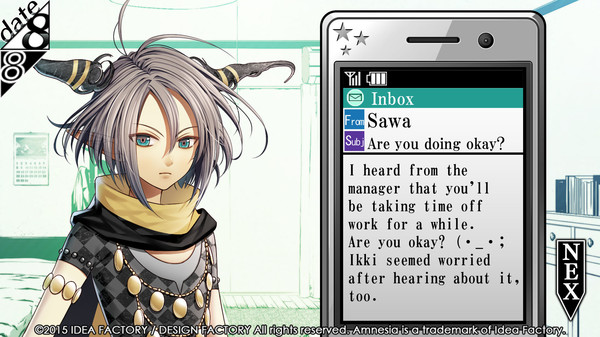
One of the boyfriends is Ikki, a very popular person who even has his own fan club. As the game progresses, the heroine feels quite unsure of her feelings and what she is to him. But me and Ikki (now I’m doing it) went on nice dates – and when I got to the first ending in that route, it was one where Ikki broke up with me. Even though I shared the heroine’s feelings of doubt about the sincerity of this person, I actually felt heartbroken. I still wanted the relationship to succeed – and I especially didn’t want him to break up with me!
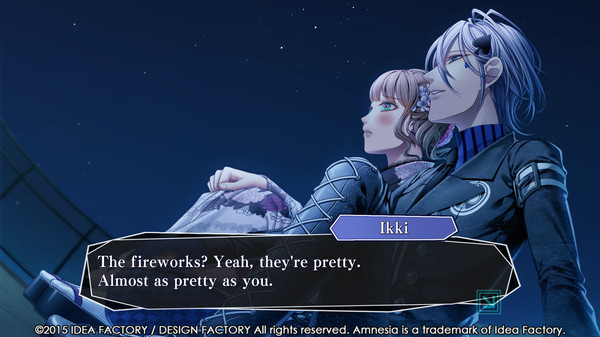
Another relationship I had in Amnesia was with Toma. Toma is a very jealous and “protective” person, and his route takes quite a strange turn, when he locks the heroine up in a cage to keep track of her. I detested Toma, and when I reached the so-called good ending – where the heroine chooses to stay with him and forgive his actions, I couldn’t feel accomplished at all. I really wanted a way to tell him that what he had done wasn’t okay in any way – and for sure I wanted the chance to break up with him (and more too).
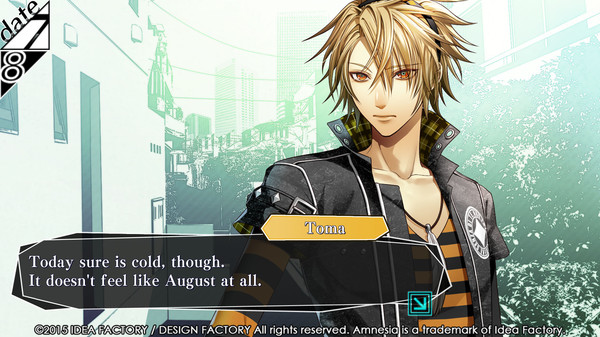
I think those two examples from the same game are very different, even though both are about things that happened in the game that made me feel bad. I could accept that I had gotten a (mildly) bad ending with Ikki, and that I could replay his route and try to get the romance ending, where he wouldn’t break up with me. But I found it hard to stomach that I had to accept Toma’s actions toward myself, which I thought were repulsive, without getting the chance to object to it. In the first case, I think the game is fine in leaving me with my feelings of regret for being dumped, but in the second case, I absolutely think the devs should have added the possibility to say “thanks, but no thanks”. I think it would have been better to give the player the opportunity to set boundaries in this situation.
(I’ve written another lengthy post full of spoilers about this game and its anime adaptation, if anyone’s interested!)
If fictional relationships feel real, how does that affect game design?
Accepting that fictional relationships feel real, and that players might object to going against their own will, can definitely affect the way we design games. We need to be mindful of how we utilize characters and relationships in games and what options we give to players. But as game developers, and especially indie devs, we also have constraints. Every new character and every route with different options adds to the game’s size – and therefore to the budget and development time. So there needs to be a balance between the options given and the scope of the game. This can lead to tricky design challenges when deciding which characters are in the game and how the player can affect the relationships with them. I’ll continue the discussion about relationships and gameplay in my next post.
Have you played any games in which you objected to relationship outcomes? Feel free to discuss in our social channels!
1 Comment
Comments are closed.

Pingback: Relationships and gameplay – Transcenders Media